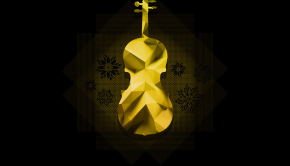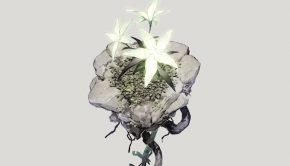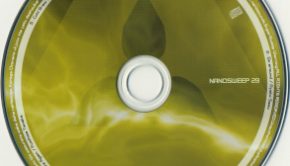Kou Hayashi & Daisuke Nagata (k.h.d.n.) Interview: Milestone Soundtracks
k.h.d.n. are a duo of electronic composers, Kou Hayashi and Daisuke Nagata, that are currently leading employees at shooter developer Milestone. During their time at the company, they have come to recognition for their often experimental and progressive scores for titles such as Chaos Field, Radirgy, Karous, and Illmatic Envelope, all of which have received prominent album releases.
In collaboration with translator Justin Pfeiffer, Don has interviewed the composers indepth, yielding their most informative and interesting interview to date. The composers extensively discuss their respective backgrounds and discuss their time at now-defunct developer Compile, before going indepth about their approach and inspirations for the aforementioned Milestone works. They also reveal details about the score for Square Enix’s 0 day: Attack on Earth and their plans to release EPs in the future. This is a must-read for all fans of electronic game music. The Japanese version of the interview is available here.
Interview Credits
Interview Subject: Kou Hayashi, Daisuke Nagata
Interviewer: Don Kotowski, Chris Greening
Editor: Chris Greening
Translation & Localisation: Justin Pfeiffer
Coordination: Don Kotowski
Support: Hiroshi Kimura
Interview Content
Don: First of all, thank you very much for your time today with us, Hayashi-san and Nagata-san. For those who are unfamiliar with your music, could you please introduce yourself and could you each describe your musical background? What led to you to the field of video game music composition?
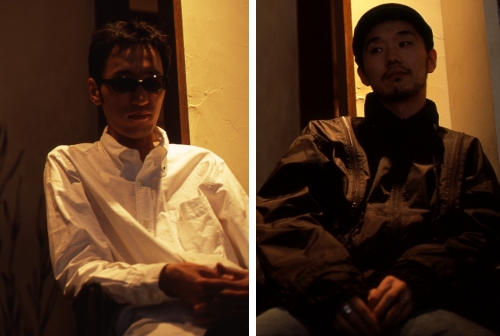
Kou Hayashi: It’s my pleasure. When I was an elementary school student, my parents bought me an MSX and all I did was play video games. When I was a junior high school student, I gradually developed a fascination for music, and from the age of 15, I began composing music for the MSX. Back then I made this sort of corny, pop-like music. After entering high school, I decided that I definitely wanted to work in the field of game music. So I bought a synthesizer with money I had saved up and learned music through self-study, although it was more like a study of the mysterious device called the “synthesizer.” I completed everything with two synthesizers, one sampler, and one mixer.
I have an older sister who always listened to disco music, which naturally entered my ears and got me acquainted with various styles like disco, soul, and funk. This had a huge impact on me. I also went to disco clubs. When I was frequenting these clubs, I would make my own songs at home. From about the time I had become a high school student, I had made up my mind that I definitely wanted to get a job working in the game music industry.
Daisuke Nagata: I have a lot in common with Hayashi, including having an MSX and the existence of an older sister, so a lot of what I have to say has already been said. But the first music I created was before the MSX, for the “Nintendo Family Basic.” After that, I did many part-time jobs and bought a Yamaha “EOS” series synthesizer. I made a demo tape with the EOS, and will continue that story in the next question.
Don: Your earliest works in the video game industry were at Puyo Puyo developer Compile. Could you describe your experiences working in the sound team of this company? What were your major projects during this period?
Kou Hayashi: I joined Compile, Inc. in 1996. Working in the professional world is extremely hard and I had requests to compose music for not just the genres I liked personally, but also a broad range of genres, which created a lot of hardships for me. Being involved in projects related to Compile’s most prevalent series, “Puyo Puyo,” was even harder. There was the responsibility and the public image toward this series… Bit by bit, I destroyed that, and was happy that I changed it into a job interesting for myself. I think the title I destroyed the most was Waku Puyo Dungeon Ketteiban for the PSX. This resulted in various opinions from the game players, but for me personally, I am very fond of this work.
There was a magazine called “Diskstation” that Compile put on sale four times a year and the deadline for the material was every three months. I was required to create a massive number of compositions and sound effects four times a year, making that a very difficult job. The shooting game Daikaisenalso appeared in that, which was the first project I handled the sound direction for after joining Compile. I carried out the sound direction and sound porting of many other projects too. Thanks to joining Compile, I was able to come in contact with various hardware and learn the characteristics of each. It was a really good company.
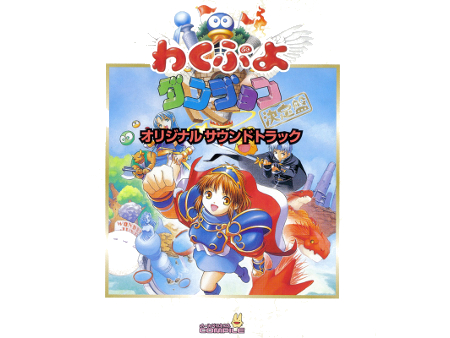
Daisuke Nagata: With the demo tape that I made with the Yamaha EOS, I got hired at Compile, Inc. For me, Compile was a place that taught me the various groundwork involved in taking up music composition as a form of work. Until then I had never touched any computer besides the MSX, so in that respect, I had to learn from square one. Compile was also where I met Hayashi. If I remember correctly, the first thing we ever talked about was “DUB.” I remember us chatting in the showers at the company’s training center. As for projects I was involved in… I have a better recollection of Zanac Neo, a game that I was involved in a few years after Compile while I was at a different company, rather than the things that I was involved in at Compile.
Don: Soundtrack releases have demonstrated that many of your compositions at Compile were remarkably light-hearted and melodious. What was it like crafting a conventional RPG score for Madou Monogatari? Was it more liberating to work on the diverse score to Waku Puyo Dungeon Ketteiban?
Kou Hayashi: Unfortunately I wasn’t involved in Madou Monogatari for the Sega Saturn. I was only slightly involved during the sound porting process. Merely porting sound data is a simple operation if you have a certain degree of skill. But simply porting sound data wasn’t interesting for me. At that time, I was impacted by a number of fantastic works by different companies and I thought to myself, “I can’t fall behind.” Waku Puyo Dungeon Ketteiban was the result of that. With Waku Puyo Dungeon Ketteiban, I held the position of sound director so I humbly arranged its music as I liked. I believe this project played a root-like role for me, and led to my current works of today. The hardware of those days had lower specifications than the hardware of these days, so it was quite painstaking.
Daisuke Nagata: There were many members at Compile’s sound team at that time. Because of this and that, I would often work on only one part of a given project. I sometimes wonder, “Did I even compose anything?” That’s the extent to which I composed music for the titles of this era. As for Waku Puyo Dungeon Ketteiban, Hayashi was the sound director, so it was easy for me to compose for this one. I did some drum n’ bass arranges and did the score relatively close to my liking.
Don: After Compile shut down, you became leading members of shooter development Milestone. Could you describe this transition and what it was like to work at a smaller developer? In particular, what inspired the decision to switch towards writing experimental electronic music? Could you both please describe your approaches to composing music at Milestone?
Kou Hayashi: After resigning from Compile, there was a period of time when I did freelance work, as well as a period when I worked at a company unrelated to video games with Nagata. There too, I was composing for work. But I felt out of place. I think it was because I wanted to compose game music.
Even after resigning from Compile, Inc., I accepted some work from them. In that period, I made Guru logi Champ and Zanac Neo, a remake of a game I played when I was a kid, Zanac. With Zanac Neo, I felt it was the first time we were able to make music how we wanted.
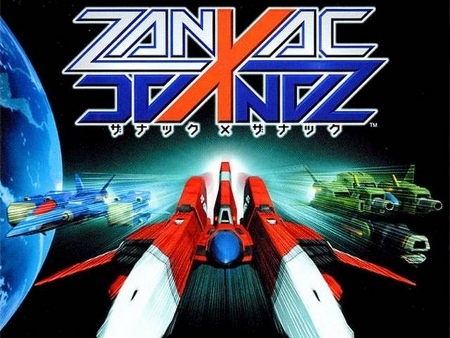
The first person to incorporate “techno” as a genre technique into game music was Mr. Shinji Hosoe, and of course, other members of Namco at that time, Ms. Ayako Saso and Mr. Sanodigy. But I wanted to put more of an underground style of techno into video games. It would be easy to request the services of a famous techno composer or drum n’bass composer for a game soundtrack. However, I wanted to make something that only a person who knew both game culture and techno music could create. When I think about whether or not I was able to realize that with Zanac Neo, I’m not sure. I think it was only a little bit of a success.
I have thought more deeply about how I make my compositions since joining Milestone, Inc.’s sound department.
Daisuke Nagata: Although my job is to compose music, I hardly ever do things like make pop music or go for easily understandable music. I always create a type of sound that I myself desire, which is an extremely selfish wayof composing (laughs). Therefore, personally I don’t feel the sound I’m creating at Milestone is experimental. It’s in fact as natural as it gets. Having experienced what I did at Compile and other companies, I think I’m composing more freely and naturally now… which is probably bothersome for Hayashi (laughs).
Don: Chaos Field seems to be your most popular soundtrack, given that it has been reprinted with some new arrangements. Could you both please describe your own personal feelings towards this soundtrack and why you think it might be so popular among fans of k.h.d.n.? There have also been many arrangements of various themes throughout the years. Have you ever thought of producing an arrange album featuring many guest arrangers?
Kou Hayashi: I was pleased with the completion of Chaos Field‘s soundtrack. I thought to myself, “How will the player feel when they hear this?” with both a sense of anxiety and anticipation. And I think it was a project that we put some serious effort into. It was a situation where if Chaos Field didn’t sell, the company would go bankrupt.
As for my inspiration, I don’t really understand it myself. It was our first project at Milestone… and it wasn’t something easily understood like musical technique or expression. I was able to transmit a powerful force invisible to the eye. This year will be the eighth year since Milestone’s establishment. Perhaps at some turning point, like the 10th year anniversary or if we resign from Milestone, I’d like to do an arrange album.
Daisuke Nagata: The Chaos Field soundtrack was perhaps the first CD that Hayashi and I made completely by ourselves. In that sense I was very happy and the emotions were flowing deeply. In particular, I was heavily involved in the world of the original game, so I had a keen sense that I was able to make an expression through not only the music, but through Chaos Field as an object itself. Perhaps its popularity was due to those areas of expression — not just merely sound, but color and texture. Yeah, right now we’re not thinking about doing any arrange projects for it. I think it’d be more interesting to make it after we’ve packed on a few more years of experience.
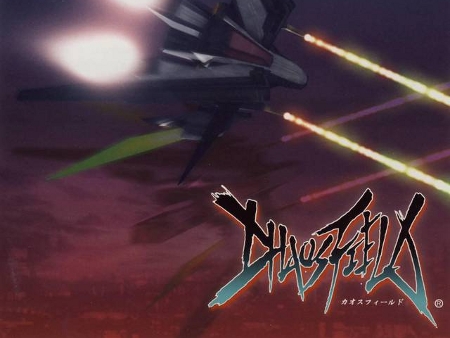
Don: The Radirgy series seems to be quite popular as well, spawning two games, the original Radirgyand the sequel Radirgy Noa. Upon listening to both of them, I noticed that the overall sound design was quite different between the two. Could you explain the thought processes behind the music to both soundtracks and the reason for the shift in musical styles between the first and second game?
Kou Hayashi: Nagata is more knowledgeable about Radirgy. The change in sound approach was also Nagata’s suggestion. Please think of Chaos Field as “Hayashi,” and Radirgy as “Nagata.”
Daisuke Nagata: Concerning Radirgy, I was humbly able to do as I pleased with the game in various ways from the outset of the planning stage. The appearance of the world, story, characters, stage design, even the word “Radirgy,” all came before the sound. Accordingly, my images for the sound too, came very smoothly. It was like, “This kind of visual should have this kind of sound.” Also, we had it in mind to do something completely opposite of Chaos Field, so that gave us an even clearer image.
As for Radirgy Noa, I don’t consider it very different from Radirgy. Rather, I consider it more of a continuation that inherited and refined images from Radirgy. For example, the music for the boss battle theme is exactly the same. For me, Radirgy Noa, while being a continuation, falls more in the side story place of the series. Perhaps that’s the difference in the sound between the two games.
Don: Karous is quite experimental in terms of sound design. Throughout the soundtrack, it is very difficult to find two themes that share a style. Could you please describe the process in determining the best musical direction for this soundtrack and your personal feelings towards the soundtrack? The published soundtrack also features many arrangements by members of Supersweep. How did they become involved with the arrangements for this album, since normally k.h.d.n. does arrangements for their own music?
Kou Hayashi: The one who wanted to create Karous was Nagata. However, as Nagata and myself are close in mental wavelength, we both similarly became swept away in the world of Karous. Mysteriously enough, I can’t seem to remember the musical direction of Karous. Whenever I work on a game I always think, “I want to make music that no one’s ever heard before.” I don’t think I was able to achieve that with Karous‘ music.
It’s like the story of a person who’s been kidnapped by aliens.
I had been friends with the members of Super Sweep since before Karous. I wanted to try working with these mentors of mine, Mr. Shinji Hosoe and Ms. Ayako Saso, so I made a request to Mr. Shinji Hosoe about the album release.
Daisuke Nagata: Having done Radirgy, I feel that Karous was a score that showed more of my individual color. Like I mentioned previously, I feel that Karous‘ music, too, wasn’t experimental either. Rather, it was quite pop-like, if anything.
The realization of getting the esteemed members of Super Sweep to do the remix was, without a doubt, one of the top five greatest things that have happened in my life. Having the likes of Mr. Shinji Hosoe remix my music was like a dream. I remember how excited we were the day we got the CD sample and listened to it in Hayashi’s car.
The game Karous, including music and all other components, feels like the existence of a shadow that I’m constantly dragging along.
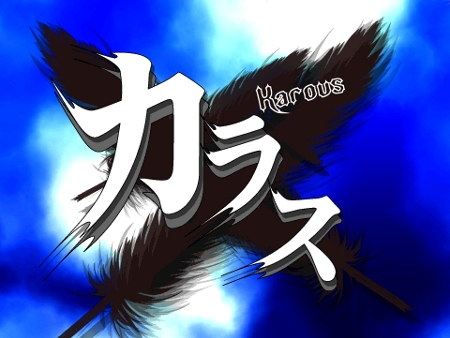
Don: Speaking of Karous, could you please explain the concept behind the k.h.d.n. showcase ver.1983album? As far as I know, it was only sold at an event called Mattari Sapporo Game Show #8.
Kou Hayashi: k.h.d.n showcase ver.1983 was special edition release. I made this CD as a surprise for my appearance at “1983’s” event, a game shop in my hometown of Sapporo on Hokkaido island. Incidentally on the day of this event, Success, Inc. had their formal announcement of the Xbox 360 title, Raiden Fighters Aces, Triangle Service’s company president Mr. Fujino had a presentation to make, and Milestone announced their version of Karous for Wii, so it was decided that the CD would be a present for this event. It was a very exciting day. k.h.d.n. showcase ver.1983 is an article that’s not for sale. Presently, there are none in stock either.
Daisuke Nagata: I myself wasn’t able to attend this event. But I have always wanted to make something that could only be acquired at an event like this, and I remember being glad that we were able to realize it. I had fun making the disc label and slip case for it. I would definitely like to make something special like this again if we have the chance. Concerning the contents of the k.h.d.n. showcase ver. 1983, it has two remix tracks from Karous by myself and one DJ remix-like track from Hayashi.
Don: Illmatic Envelope is probably your most diverse soundtrack from Milestone. Could you explain the concept behind the seemingly random nature of the soundtrack’s styles and what was the most challenging part about composing this soundtrack?
Kou Hayashi: We decided to make the concept of this soundtrack based around the genre, “electro.” Since it was going to be electro, we concluded that, if we matched new and old with a techno approach, anything would be fine. The game system itself is quite unique so we included elements of randomness in it as well, but basically it’s electro. During the production of the game we were told to “write lots of short loop songs,” which proved to be more difficult than the soundtrack. I cried the entire time while composing these.
Daisuke Nagata: During the time of the production of Illmatic Envelope, musically-speaking, electro was in style, but fashion-wise neon colors were the thing. As you can probably imagine from the title… although it is in fact electro, we wanted to make a concept that didn’t exactly verge on techno, but had more with a hip-hop background. Needless to say, the title, Illmatic Envelope, was inspired by NAS’s [the rapper] album. I can’t write all the details here, but at the time this album was being produced, I had a lot of painful stuff going on mentally (laughs).
Don: Recently, many of your soundtracks have been published by Supersweep. How were you introduced to Shinji Hosoe-san and his record label? What inspired you to start releasing your soundtracks and would you consider the release of your soundtracks a success?
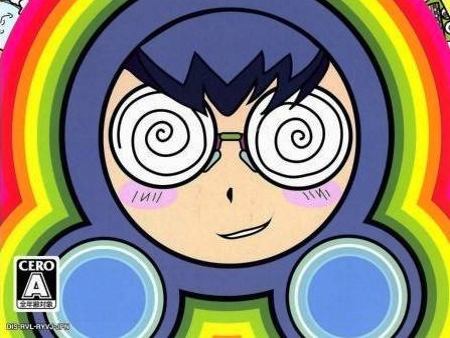
Kou Hayashi: I simply liked the works of Mr. Shinji Hosoe and Ms. Ayako Saso. They were Super Sweep. Mr. Shinji Hosoe has been producing many fantastic works for a long time and we grew up listening to the music of those works. Now, being under the same label and in the same position, I’m always thinking, are we winning? Are we losing? But at the present time, it’s not about winning or losing. We maintain a very good relationship with Mr. Hosoe. The only music label handling a genre of music as close to ours was Mr. Shinji Hosoe’s label.
Daisuke Nagata: When I was still a grade student, Mr. Shinji Hosoe and Ms. Ayako Saso were already incorporating jungle and drum n’ bass into game music, which shocked me. Of course, even before that time, their music would flow through me like air and water, so now having my music released through Super Sweep is both strange and rewarding at the same time.
Don: At the turn of the decade, you produced two original albums in the Sinewave Compilation. What inspired the production of these albums and what sort of style did the music adopt? Have you thought about producing more original albums, similar to what has been done with the Nanosweep series by Supersweep and Nanosounds?
Kou Hayashi: Sinewave Compilation was a really interesting album for me. However, I wasn’t able to make the kind of album that I wanted. There are a lot of announcements we haven’t made yet, but k.h.d.n., as a unit, is thinking about making some interesting original albums from here on out. I believe the sound that we let people hear will perhaps beat Nanosweep and Nanosounds (Mr. Hiroshi Okubo).
Daisuke Nagata: Sinewave Compilation…how nostaligic. When I think about it, I don’t think the music I compose now has changed much since then (laughs). I definitely want to make an original album work. But not a full album. I like mini things like E.P.s, so that’s something I want to try releasing.
Don: Mr. Hayashi, you recently worked on Square Enix’s 0 day: Attack on Earth for the Xbox Live Arcade. How did you come to participate in this project alongside Go Sato and Emagicker? What inspired your four very experimental contributions to this otherwise largely orchestral project?
Kou Hayashi: Concerning 0 day: Attack on Earth, that was a project that I collaborated on with Mr. Go Sato and Mr. Emagicker. Unfortunately, Nagata didn’t participate. However, having separated myself from Nagata and our k.h.d.n. unit, I thought it turned out to be a fantastic project where I was able to enter a new world and new approach. The offer came from product director, Mr. Osamu Chadani. I created the sound effects, four music tracks, and eight tracks for the additional pack (London Stage). Orchestral music isn’t one of the strong points in my works, but I researched modern day film music and had a great time creating the music for this project.
I also got along really well with Mr. Go Sato and Mr. Emagicker. I think our music will be pretty rare for many years. I want to meet more people and have them hear my music. I think 0 day: Attack on Earthwas my greatest work of last year (2009).
Daisuke Nagata: Daaaamn. I’m jealous (laughs).
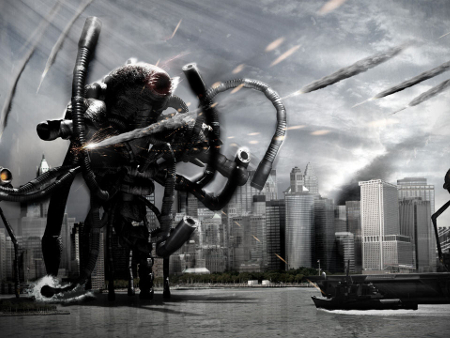
Don: With the advancement in technology, the music featured in video games has continued to grow. How do you feel the advancement in technology has helped your music grow and what do you think the future of video game music holds?
Kou Hayashi: That’s a very difficult question. My opinion is this: game music is game music, while game music is also the byproduct of ‘video games.’ If the game isn’t interesting, it will have boring music. Conversely, if the game is interesting, the game music will play a magnificent role in the production. To recite that simply, it’s not a matter of technology — I want it to be matter of game culture, as a complete work of art.
Buying games for the purpose of game music… is something from a previous era and only about nostalgia. There’s no difference in the past or present. If an interesting game is made, it has the potential to have great music. For example, when you go driving or shopping with your girlfriend and have her listen to game music. I don’t want it to be embarrassing. I want to make something that will have her say, “That’s cool.”
Daisuke Nagata: Compared to the past, game music isn’t as underground or maniac-ie as it used to be. Compositions done using a computer too, are something anyone can achieve these days.
I don’t really like these phenomenon. I want game music to be core and maniac-like. I don’t consider game music to be “compositions done using a computer that anyone can do.” Like anything else, I believe evolution isn’t always a good thing. Precisely because we’re in a modern age where technology is developed and computerization has progressed remarkably, I want to output something from the “core part,” that existed before the endless fractionalization.
Don: Thank you very much for conducting this interview with us today. Can you give us any information about what awaits fans of k.h.d.n. in the future in terms of musical projects? Is there anything you would like to tell the fans of k.h.d.n around the world?
Kou Hayashi: I want to thank you for this awesome interview, unlike the ones by Japanese (and uninteresting) Game Media. We will be announcing many new works, which will probably be Milestone projects, and there may be project announcements from other companies too.
As k.h.d.n., which stands for Ko Hayashi and Daisuke Nagata, we want to make enjoyable releases for people all over the world. I hope to continue creating various music that excites game players of the whole world, and even excites their girlfriends when they hear it. Music holds a mysterious power. Enjoy both games and game music.
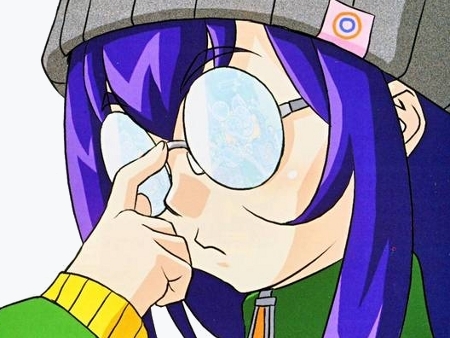
Daisuke Nagata: I’ve never had a worthwhile interview like this. I am extremely honored and appreciative that you chose to interview us out of so many talented creators out there. To think that our music is being listened to not just in Japan, but overseas as well, gives me a sense of enjoyment that is hard to explain. For me personally, I would be very pleased if someone out there in the world could get a sense of this black, shadow-like object that I drag along. We at k.h.d.n. plan to make various announcements in the future, so I hope you are looking forward to them! Thank you very much. Peace.
Many thanks to Justin Pfeiffer for taking the time to meticulously translate this long interview. Thank you to Kou Hayashi and Daisuke Nagata for their wonderful responses. Finally, thank you to Milestone, Inc. President Hiroshi Kimura for his kind contribution of the pictures of the composers. Look out for complete coverage of k.h.d.n.’s albums on the site in the coming month.
Posted on April 15, 2010 by Chris Greening. Last modified on April 23, 2014.


